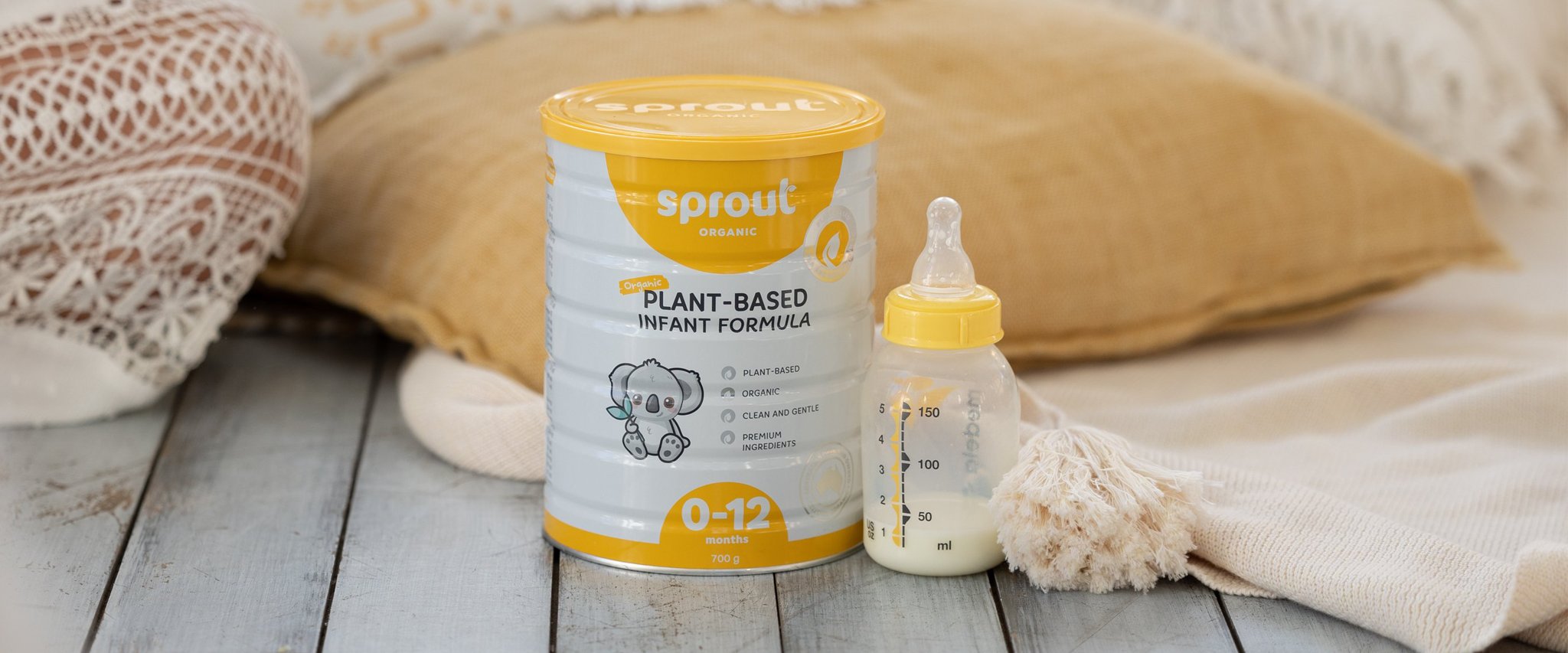A Guide to Plant-Based Nutrition for Infants (0-6 Months)
Join dietitian Monica Rundle for a 5-part series exploring the key nutritional needs of plant-based kids, from infancy through adolescence. In part one, we’re diving into the essentials of plant-based nutrition for infants aged 0-6 months.
The Power of Milk (Breast or Formula)
Breastmilk is the recommended first feeding choice for your little one, with exclusive breastfeeding recommended until 6 months. However, if breastfeeding isn’t possible, iron-fortified infant formula is a safe and healthy alternative.
Plant-based infant formulas are available and can be just as safe and effective as cow’s milk-based formulas when they are fortified with essential nutrients like vitamin B12 and vitamin D.

Breastfeeding on a Plant-Based Diet
For breastfeeding parents following a plant-based diet, it’s essential to ensure you’re meeting your own nutritional needs to support both yourself and your baby. Key nutrients to consider include:
-
Calories: Whole grains, nuts, seeds
-
Protein: Legumes, tofu, tempeh, nuts
-
Omega-3s: Flax, chia, walnuts, and algae DHA
-
Vitamin B12: Supplement required
-
Calcium: 2 servings of calcium-fortified plant milk
-
Iron: Leafy greens, lentils, peanut butter (or supplement)
-
Vitamin D: Sunshine & supplement
-
Iodine: Iodised salt
-
Choline: Soy, quinoa, nuts, seeds (or supplement)
-
Natal Multivitamin: Continue prenatal vitamin
Introducing Solids (When Ready)
Around 6 months (and never before 4 months), your baby may be ready to explore solid foods. Look for these signs of readiness:
-
Good head and neck control
-
Ability to sit with minimal support
-
Reaching for objects (including food) and bringing them to their mouth
-
Curiosity about food and interest in others eating
-
No longer pushing food out with their tongue (i.e. loss of the tongue thrust reflex)

When introducing solids, parents can choose between traditional spoon-fed purees or Baby-Led Weaning (BLW).
What is Baby-Led Weaning? BLW allows babies (around 6 months) to explore solids on their own. Instead of spoon-feeding purees, they’re given soft, safe pieces to pick up and eat at their own pace. This method encourages self-feeding, hand-eye coordination, and a positive relationship with food.
First Plant-Based Foods
Great first foods for plant-based babies include:
-
Avocado
-
Sweet potato
-
Banana
-
Broccoli
-
Lentils (pureed)
-
Iron-fortified infant cereals
Plant-based babies require special attention to certain nutrients, including iron, vitamin B12, vitamin D, omega-3s, and healthy fats.
Foods to Avoid + Tips for Success
Foods to Avoid
-
Honey (risk of botulism)
-
Added salt and sugar
-
Choking hazards (whole nuts, hard raw veggies, popcorn)
-
Plant milk as a main drink (continue breast milk or formula)
Tips for Success
-
Start with one meal a day
-
Choose a time when baby is alert
-
Always feed upright, in a high chair
-
Where possible, eat meals together
-
Be patient and relaxed
-
Expect mess—lots of it!
Ready to Learn More?
Stay tuned for next week’s post, where we’ll cover plant-based nutrition for infants aged 6-12 months!
It’s always best to consult a doctor or dietitian for personalised guidance.






Leave a comment